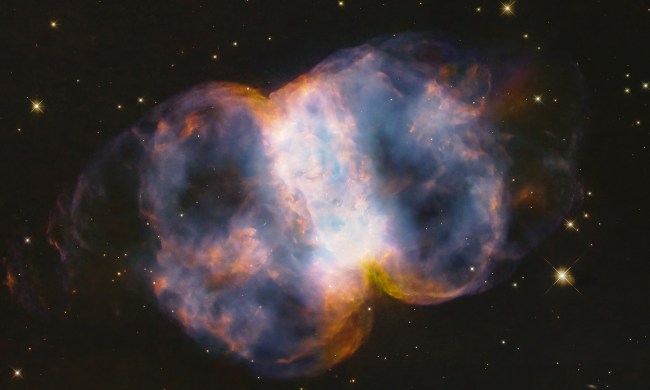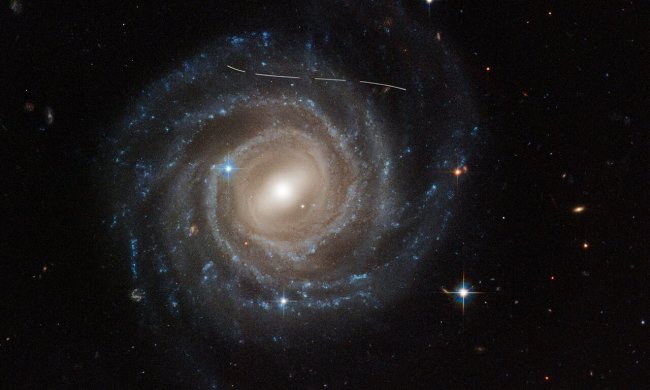This week’s image from the Hubble Space Telescope shows a pair of interacting galaxies, collectively known as Arp 282. The bottom galaxy, NGC 169, is a type of highly active galaxy known as a Seyfert galaxy. Many similarly active galaxies are hard to observe because they give off so much radiation, but Seyfert galaxies give off energy at wavelengths other than those observed by instruments like those on Hubble. That means the galaxy can be clearly observed, even though it’s extremely active.
The other galaxy in the image, IC 1559, located toward the top of the image, is also a very active type. The two galaxies are so close together that they are interacting, with material moving between the two in streams of matter.

It’s rare to see two energetic galaxies interacting so clearly. “Interestingly, both galaxies have monumentally energetic cores known as active galactic nuclei (AGN), although that is difficult to tell from this image, which is fortunate,” the Hubble scientists write. “If the image revealed the full emission of both AGNs, their brilliance would obscure the beautifully detailed tidal interactions we see in this image.
“Tidal forces occur when an object’s gravity causes another object to distort or stretch. The direction of tidal forces is away from the lower-mass object and toward the higher-mass object. When two galaxies tidally interact, gas, dust, and even entire star systems can move toward one galaxy and away from the other. The image reveals this process in action as delicate streams of matter visibly link the two galaxies.”



